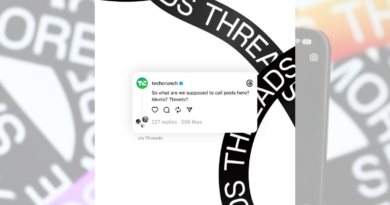Coming soon to TikTok in Europe: A ‘For You’ feed without the TikTok algorithm
Get ready for a version of TikTok you’ve never seen before! Without the hyper-sticky, AI-driven ‘For You’ feed…
The video sharing platform has announced that TikTok users in the European Union will “soon” be able to switch off its infamously engaging content-selection algorithm as it prepares to comply with the bloc’s updated digital rulebook.
The EU’s Digital Services Act (DSA) puts a requirement on popular platforms like TikTok to offer users the choice to see content recommendations that are not based on tracking and profiling their activity on the platform — a surveillance-based practice platforms typically refer to as “personalization”. So the incoming choice for users in Europe to see a non-personalized ‘For You’ feed on TikTok is part of the its preparations to comply with the bloc’s rebooted digital rules.
TikTok also recently announced the launch of its first ever ads transparency library (initially only for ads running in Europe) and a regional extension to its research API — also as it preps to hit its DSA compliance deadline later this month (August 28).
Back in April the EU named TikTok as one of 19 so-called very large online platforms or search engines. The regulation requires these popular platforms provide users with a choice to switch off recommender systems based on profiling. VLOPs and VLOSE must also report on (and mitigate) algorithmic risk, as the EU dials up accountability around the use of AI by platform giants.
The incoming algo choice for TikTok users in Europe means that instead of seeing content in their For You and Live feeds that has been algorithmically selected for stickiness, based on what the platform’s AI has assessed will most engage them based on tracking all the other stuff they’ve looked at on the platform, users will be able to opt out of its surveillance-based attention targeting.
Those that choose to give TikTok’s eyeball-hogging AI the heave-ho will see For You and Live feeds populated by videos that are popular in their “region” and “preferred language”, per the company.
The DSA requirement that it offer a choice to deny personalization means further changes will apply for those that deny its profiling and AI-powered content sorting.
To wit: Search on the platform will also be non-personalized, meaning users will see search results with sorting also based on “popular content from their region and in their preferred language”, rather than results selected with the intention of hacking their attention. While the Following and Friends feeds for these users will have content displayed in chronological order, rather than based on individual profiling.
The shift is a seismic one when you consider how much of TikTok’s success as a platform in what remains a hyper competitive space (social media) has been credited to the stickiness of its algorithmic recommendations.
But of course TikTok is only now giving users the choice not to be attention hacked because the EU has passed legislation that explicitly requires it to let users deny personalization.
It won’t be the only major platform having to do this in Europe, either. Others that will have to offer users the same choice under the DSA include the likes of Instagram and YouTube — other ad-funded platforms which ply their users with algo-driven content recommendations by default in order to drive engagement and boost profits.
AI-powered recommender engines, such as YouTube’s ‘Up Next’ video selector, have long been linked to highly unpleasant societal outcomes — given the role the tech can play in spreading hate speech, disinformation and even terrorism.
Ad-funded platforms make money off their users’ attention so driving engagement is core to their businesses. Which is why they haven’t generally been incentivized to offer users a clear choice to deny personalization — as TikTok will “soon”. But the DSA changes that.
Twitter (now X) is an exception where a non-algorithmic feed has always been core to the product experience on the platform. Although it does also have its own algorithm-driven For You feed and may still inject personalized content selections into that user’s Following feed so, for DSA compliance purposes, X is likely to need to go further and provide users with a choice to blanket deny its personalization.
If X-owner Elon Musk keeps thumbing his nose at the EU’s rules he’ll be opening himself up to serious regulatory risk (fines for non-compliance with the DSA can reach up to 6% of global annual turnover).
More DSA-driven changes
Today TikTok has detailed some further incoming tweaks as it prepares its platform for DSA compliance.
Its blog post notes that users in Europe who are aged between 13 and 17 will no longer see personalized advertising based on its tracking of their activity on (or off) its platform. Other (i.e. older) users do already have the ability to switch off personalised ads in the TikTok settings but the DSA puts a hard ban on serving personalized ads to kids.
The pan-EU regulation also bans the use of sensitive data for personalized ads but TikTok’s blog post does not discuss how it will be complying with that requirement. (We’ve asked the company for more details of its compliance plan there. Update: TikTok told us it already prohibits advertisers from using special category data to target users.)
Another regional change the video sharing platform flags as coming within “weeks” is what it describes as an “additional content reporting option” for users in Europe to report content they believe is illegal — which will supplement the AI-driven content moderation it already uses.
Again, the move isn’t surprising; the DSA sets out a governance framework for how platforms should handle illegal content reporting and takedowns.
“To make this as easy as possible, people will be able to choose from a list of categories such as hate speech, harassment, and financial crimes. We will provide a guide to help people better understand each category,” TikTok writes.
It further stipulates it will first review content European users are reporting as illegal against its Community Guidelines and remove it globally if it deems it violates its policies. If not, it will review content against local rules on illegality — which can vary across EU Member States — and restrict access only where local laws are breached.
“We will inform both the person who posted the content and the person who reported it of the decision we have made and why. Both will also be given the opportunity to appeal a decision they disagree with,” TikTok adds.
In another DSA-driven change, European users are set to get a greater degree of transparency around TikTok’s moderation decisions.
Currently TikTok only informs users when their content has been removed; when their account has received a strike; or when their account has been banned for violating its Community Guidelines.
But users in Europe should expect to get more detail about its content moderation decision-making in the coming weeks.
“Under the DSA, we will provide our community in Europe with information about a broader range of content moderation decisions,” TikTok writes. “For example, if we decide a video is ineligible for recommendation because it contains unverified claims about an election that is still unfolding, we will let users know. We will also share more detail about these decisions, including whether the action was taken by automated technology, and we will explain how both content creators and those who file a report can appeal a decision.”
All the changes being announced by TikTok today will apply in the European Union and EEA.
The ban on personalized ads ban for kids also applies in the U.K. — and has already been implemented (as of last month) across the wider European region. But the illegal content reporting changes and additional detail provided around content moderation decisions are specific to countries where the DSA applies, per TikTok.
This report was updated after TikTok responded to questions about where the various changes apply





